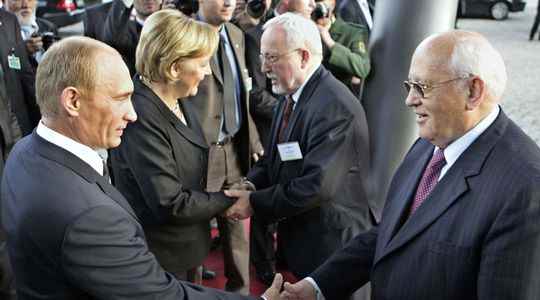We may never know what Mikhail Gorbachev thought of the war in Ukraine. Died on Tuesday August 30 at the age of 91, he never took a position, in public, on Vladimir Putin’s decision to send the Russian army there. The last leader of the USSR, on the other hand, welcomed the annexation of Crimea by Russia in 2014. “I am always on the side of the will of the people and most people in Crimea wanted to be reunited with Russia”, had he declared, two years later, after a referendum – very controversial – on this territory. This exit earned him a ban on entering Ukrainian territory.
However, Gorbachev did not always support the policy pursued by Vladimir Putin, who hardly cared about the former leader – he considered that the fall of the USSR had been “the greatest geopolitical catastrophe” in the world. Twentieth century. In 2010, “Gorby” exposed his frank disillusionment, saying that Putin’s United Russia party operated “like the Communist Party of the Soviet Union, only worse”. And the following year, he denounced his “authoritarian tendencies”, evoking a “return to the past”.
“It’s regrettable and shameful, I’m ashamed because I felt I had a connection with Putin and I actively supported him when he came to power [en 2000 comme président]“, he said, afterwards. The former KGB officer, then Prime Minister (2008-2012), had just compared his opponents to “monkeys”.
“I am ashamed for us and for the country”
In December 2011, when Putin’s stranglehold was being challenged in the streets, Gorbachev called on him to “leave now”, stating that “three terms is enough”. His criticisms concerned all the elites in place. He had thus vilified a “ruling class”, “rich and depraved”, with “revolting” conduct. “I am ashamed for us and for the country,” he added.
The disappointment lived up to the hopes that Putin’s rise to power had aroused in him. At the beginning of the reign of the current head of the Kremlin, Gorbachev believed that the latter had “saved Russia from dismantling” and had “begun to find a solution to social issues”, relying on hydrocarbon revenues. “History will credit him with this important contribution, thanks to which Russia can have a future,” he added. “With the means at his disposal, he reintroduced hope”, he defended him, in 2006.
Sick, diminished, Gorbachev had swallowed his criticisms in recent years. During the filming of a documentary in 2019 and 2020, As an aside, he evaded questions about a master of the Kremlin in full authoritarian drift. While Moscow was massing its troops on the Ukrainian border, he castigated, at the end of 2021, the “arrogance” of the Americans and a Western camp who wished to “build a new empire” by “the enlargement of NATO”. A vision consistent with Putin’s doxa.
